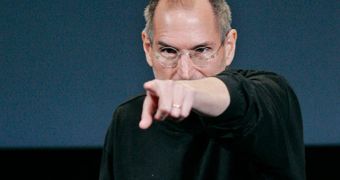Forbes is running a feature piece on Apple and Microsoft using quite the speculative headline. The business magazine has calculated that Apple’s iPhone business is now bigger than all of Microsoft, the Cupertino giant’s archrival.
Noting that the comparison mostly takes sales into account, Forbes offers a stunning statistic saying, “One Apple product, something that didn’t exist five years ago, has higher sales than everything Microsoft has to offer.”
“More than Windows, Office, Xbox, Bing, Windows Phone, and every other product that Microsoft has created since 1975. In the quarter ended March 31, 2012, iPhone had sales of $22.7 billion; Microsoft Corporation, $17.4 billion.”
This doesn’t actually mean Apple’s standalone iPhone business can rack up against the giant software maker headquartered in Redmond, WA. In fact, some of the iPhone’s sales are attributed to Microsoft. Of course, it goes the other way around, but it means you can’t really quantify accurately.
But the most important thing is still sales, according to Forbes.
“While it’s not really correct, for ‘worth’ implies a stock value not a flow value, and sales is a flow not a stock, the easiest of the available numbers to use is just that: compare the sales. And as Vanity Fair notes, the value of sales of iPhones is now greater than the value of the entirety of Microsoft’s sales,” reads the text.
It adds, “And the thing is, that’s not really the most remarkable thing about Apple’s recent achievements. The truly strange thing is that they’ve managed to gain this level of sales while making software style margins on selling hardware. That’s the trick that no one else is managing at all.”
Indeed, Steve Jobs’ life-long plan is unfolding nicely at 1 Infinite Loop, Cupertino, California, where Tim Cook and Co. are managing every aspect of Apple’s business with pinpoint accuracy.
You can’t have insanely great hardware without some proper software to boot. And who is better to code it if not your own engineers, drenched in the passion that got them to work at Apple in the first place?

 14 DAY TRIAL //
14 DAY TRIAL //